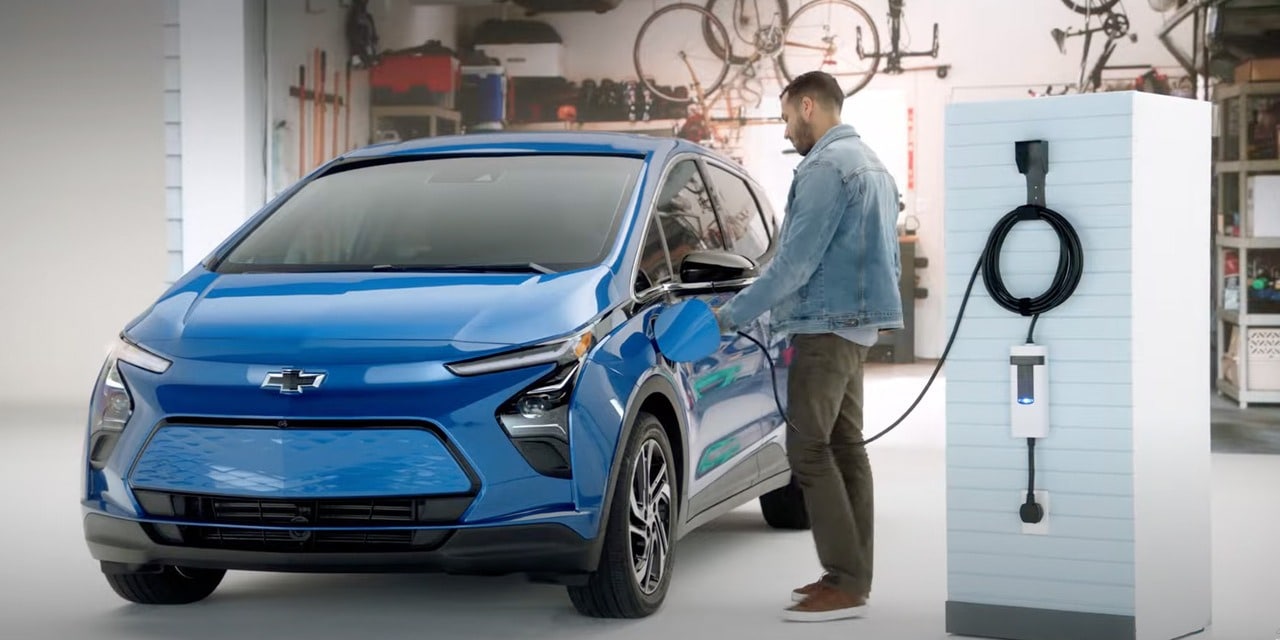

For those looking for an affordable electric vehicle (EV) that won't break the bank, the Chevrolet Bolt EV and Nissan LEAF have long stood as two of the most budget-friendly options on the market. While the Bolt was discontinued in 2023, it's expected to make a comeback for 2027. Meanwhile, Nissan continues to refine the LEAF, with a major update due in 2026. We've put together this Bolt EV vs. Nissan LEAF comparison to help you make the right pick for your High Desert commutes and adventures.
Design and Interior Space
The previous version of the Bolt EV featured a practical hatchback body that maximized space from its small footprint, making it great for downtown parking. However, early reports suggest that the 2027 Bolt will be based on a slightly larger, more SUV-like body style. Similarly, the 2026 Nissan LEAF is thought to be ditching its hatchback profile in favor of crossover-like styling, featuring a higher seating position that matches the preferences of today's buyers.
Cargo space was always a clear winner in the Bolt, with the 2023 version providing 57 cubic feet with the seats down — perfect for Big Bear weekends or Costco runs. By contrast, the 2025 LEAF offers just 23.6 cubic feet with all seats up and 30 cubic feet with them folded. However, the redesigned 2026 LEAF is projected to offer up to 56 cubic feet behind the rear seats — closing the gap significantly on the Bolt.
Both cars have traditionally been known for their minimalist interiors, featuring cloth seats and manual front-seat adjustments, and we don't expect this to change. Luxury isn't the goal with these EVs — simplicity keeps them accessible and budget-friendly.
Performance and Driving Range
The 2023 Bolt EV delivered decent acceleration, going from 0 to 60 mph in 6.5 seconds, while the 2025 LEAF SV Plus manages 6.9 seconds with its 40 kWh battery. Range shows bigger differences, with the previous Bolt EV rated at 259 miles and the current LEAF delivering around 149 miles in the base S trim and up to 212 miles in the SV Plus. The 2026 LEAF is expected to surpass these figures, though, with a maximum range of 303 miles. That's a major improvement over today's model and will help it remain competitive with the 2027 Bolt.
Charging and Battery Technology
Depending on the trim, the 2026 LEAF will feature either a 50 or 75 kWh battery with active cooling and dual ports, allowing for 10% to 85% charging in 35 minutes. This marks a step forward from the current LEAF, which is equipped with either a 40 or 60 kWh battery that's slower to charge.
The 2023 Bolt offered efficient DC fast charging, capable of adding 100 miles in 30 minutes and achieving a full charge in about an hour. While we can only speculate on battery improvements for the revamped Bolt model, reports suggest that both the 2027 Bolt and 2026 LEAF will feature NACS charging ports, giving them access to the Tesla Supercharger network.
Infotainment Features
Today's LEAF comes with an 8-inch touch screen, Apple CarPlay, Android Auto, Bluetooth, four USB ports, and a basic six-speaker stereo. The 2026 LEAF is expected to raise the bar, offering a standard 12.3-inch touch screen, a more sophisticated Google-based interface, and an available 10-speaker Bose audio system. While infotainment details for the 2027 Bolt remain under wraps, the previous model offered a 10.2-inch touch screen, wireless phone charging, and Wi-Fi hot spot capability back in 2023, so we're expecting big things from the new version.
Pricing
The 2025 LEAF starts at $28,140 for the S trim, going up to $36,190 for the SV Plus. The 2026 LEAF is expected to be priced slightly lower, starting at around $26,000, but could reach $40,000 depending on the trim and options. Reports suggest that the 2027 Bolt EV will have a starting price of around $30,000, making it competitive within America's EV market.
Which EV Wins the Battle?
If you're looking to buy an affordable EV, whether to opt for the Nissan LEAF now or wait for the return of the Bolt will depend on your needs and preferences. The LEAF makes more sense if comfort and updated technology top your list, while the Bolt is likely to offer more cargo space, quicker acceleration, and faster charging.
Ready to try electric driving? Contact us at Victorville Chevrolet to schedule a test-drive and explore our EV inventory. We can help you decide which car fits your driving habits and budget best. The right EV is waiting for you.